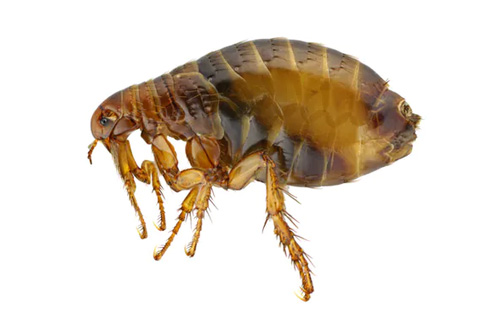
Is your pet fidgeting and scratching an unusual amount? Spotted something jumping around on the carpet? If you find yourself fretting about fleas, you’re in the right place.
Discovering there are fleas in your home is distressing and, due to their lifecycle, can be an uphill battle to control.
Fleas are ectoparasitic insects, meaning they live on the outside of a host animal. They feed on the blood of mammals and birds. It’s estimated that there are around 2,500 species of flea in the world.

In Ireland at least, fleas do not commonly spread disease.
Although fleas do not pose a direct health risk, flea bites can cause intense irritation and itching to pets and humans alike.
If your pet has fleas, it will suffer from a great deal of discomfort and could also have an allergic reaction to the flea’s saliva.
Lengthy periods of infestation can cause your pet to develop anemia from the loss of blood, although this is rare.
Other types of flea to be aware of are; the Bird flea Ceratophyllus gallinae and Human flea Pulex irritans.
The Bird flea only lives for a short time but is an impressive breeder, multiplying in great numbers in habitats such as hen houses.
Finally there are Human fleas, which are now rare in Ireland. They are a known carrier of plague Yersinia pestis.
It’s difficult to prevent your pets from getting fleas. However, householders can put steps in place to try and avoid a flea infestation:

We can help minimise pest activity with a range of techniques and have the technical knowledge and experience to apply products in an efficient manner, while minimising risk to the environment and non target species.